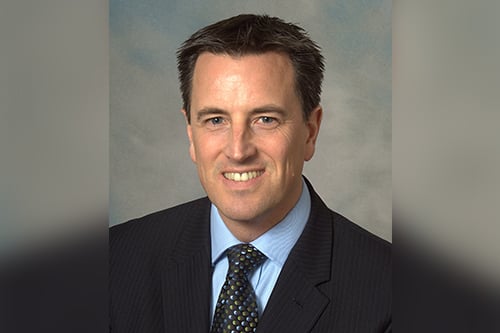

The need for adaptable and accessible insurance solutions has never been greater than during the COVID-19 pandemic. With so much uncertainty buffeting the insurance industry, companies are increasingly looking for new opportunities to put their customers at the heart of their business models and to rebuild consumer trust in the sector at this mission-critical time.
Geobear, the UK-based specialist in non-disruptive subsidence solutions is one such business which has found that the services it offers are aligned to the changing requirements of both businesses and customers in a post-COVID world. Alex Finch (pictured), the commercial director of Geobear noted that COVID has created a whole host of problems for loss adjusters who are finding themselves with large books of claims which are not being repaired.
The solution, according to Finch, is the formation of partnerships with experienced and innovative businesses which offer cost-effective and timing-saving services. Geobear, which has completed around 206,000 projects worldwide, has managed to cut the typical lifespan of complex domestic subsidence claims by 75% and the non-invasive solutions it offers are, he suggested, ideal for a lockdown environment.
“We’re in a fortunate position as our work is quick and largely outside so, through COVID, we’ve almost operated as normal, just with a lot of health and safety considerations,” he said. “Because we’re outside, customers are comfortable with us as there’s no real interaction, and we do our bit in a day or two days and then we’re done and the property’s nice and stable.
“The problem has been that builders need to get into the house itself to do repairs and redecorations, and lots of builders have either furloughed staff or had to downsize because of the predicament they’re in. You have this big backlog of final repairs that aren’t getting done and the more claims that come through, and this could be a busy autumn for new claims, the more this backlog is building up. So, we are doing our bit by stabilising the property.”
Insurers are aware of the problems facing them with regards to accessing materials from abroad and due to the dramatic slowdown of manufacturing as well as the reduced workforce at their disposal, he said. What is essential is that they start to look more laterally at the solutions which are available right now, which can ease the long-term implications of the crisis.
Around 45% of valid subsidence claims from 2018 have still not been closed, Finch noted. Whether these are in the repair process and potentially postponed because of COVID, or in the monitoring phase where a decision hasn’t been made yet, this is a substantial issue which needs to be resolved.
Since the COVID crisis began, he said, the business has seen an uptick in smaller insurers reaching to them directly to discuss this offering. Insurers tend to be more hands-on and having heard about the business and seen that it has won awards, they are curious to know more about the solutions it can supply. This direct contact with insurers is more effective than reaching out through suppliers as it facilitates one-on-one conversations about the benefits of these services and ensures that decisions are made much more quickly.
“If a supplier or adjustor is trying to convince a principal [about these services] who is taken up with thinking about COVID, then it might be a year before they really listen,” he said, “so, it can be a slow process. And some insurers are now taking the initiative, but it’s still relatively slow, particularly with some of the bigger ones. So, we’re out there and we’re getting used but I just think this is a real missed opportunity.”
For Geobear, an area of focus going forward will be working more closely with brokers to familiarise them with these subsidence solutions. The link that brokers provide with insurers and the relationships they have formed with them are key to promoting this message, and to increasing the level of uptake of these services across the industry.
An emphasis on customer satisfaction is also more essential than ever with the COVID crisis putting the spotlight on the reputational impact the pandemic is having on the insurance industry. Finch believes Geobear’s model is inherently customer-centric.
“The key message here [for insurers and brokers] is to listen to what your customers want,” he said. “They are desperate for a quicker solution and there is a solution there for you. And usually, insurers and adjusters accept that if it’s a quicker solution it will probably save money. And that’s pretty much how it goes.”
